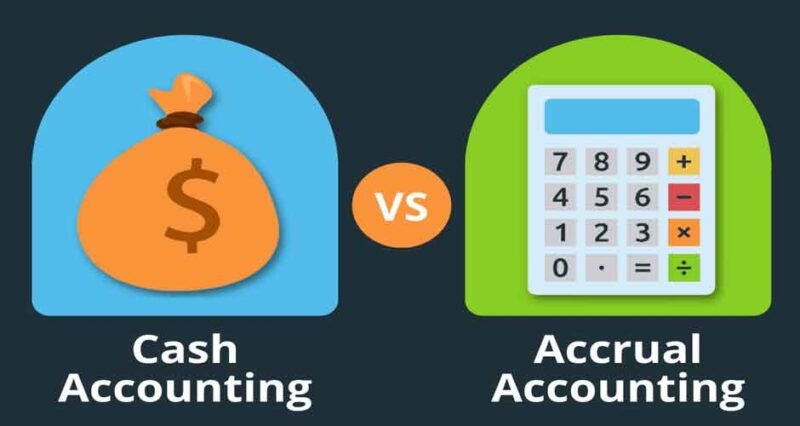
There are two basic ways for monitoring revenue and spending in the world of finance and bookkeeping: cash accounting and accrual accounting. Each approach has distinct benefits and uses, making the choice between the two critical for both enterprises and individuals. The difference is in how and when financial transactions are recorded, and the technique used can have a substantial influence on financial reporting, tax liabilities, and overall financial management.
Understanding the differences between these two accounting approaches is critical for making educated financial decisions, whether you’re a small company owner, an entrepreneur, or an individual managing personal task.
Cash vs. Accrual Accounting
Companies must first decide which accounting foundation they will use in order to choose accounting outsourcing services correctly. Companies might opt for one of two main accounting methods: cash-based accounting or accrual-based accounting. The distinction between both accounting methods depends on when a corporation actually registers a sale (money inflow) or purchase (money outflow) in the books.
Difference Between Cash and Accrual Accounting
There is a temporal difference between accrual-based and cash-basis accounting. When should you record costs and report revenue? Accounting using a cash basis is used when funds are received or paid. If you record your accounting when you get a bill or create an invoice, it is accrual-based. The following are some ways that accrual and cash accounting differ from one another:
- Cash-basis businesses only record their revenue and expenses when money is exchanged. Submitted bills, revenues, and invoices are only regarded as expenses once they are paid. Companies that use accrual accounting start recording revenue as soon as a customer invoice is received. Even when payment for a bill is not due for another 30 days, it is recorded as an expense as soon as it is received.
- On the one hand, accrual-based accounting gives you a far better picture of the business’s activities and finances; on the other hand, cash-based accounting only requires you to pay tax on money received rather than invoices generated.
- Cash-based accounting is erroneous; it could give the impression that you are profitable just because you have yet to pay your bills, but accrual-based accounting allows you to claim the tax back on your subsequent return if the client doesn’t pay you.
Another approach, known as QuickBooks outsourcing, is a practice where businesses and individuals hire external professionals or agencies to handle their QuickBooks accounting and bookkeeping tasks. It can be used to ensure that you receive the full benefits of outsourcing while maintaining control and security over your financial data.
What Should You Choose?
Accrual accounting provides a more accurate picture of a company’s performance since it displays the actual dates of income and spending. To determine if a given month was profitable, use accrual. Certain companies also use cash-based accounting for tax purposes and to monitor their cash flow. However, cash accounting is rarely used exclusively.
Even though accrual accounting requires more work, technology may save you much of the hard work. Your invoices may be read by accounting software, which will then automatically input the amounts into your expenses on an accrual basis. Additionally, as you raise invoices, more of them will be recorded as income. Furthermore, if your accounting system is hybrid, clever software will allow you to switch between an accrual basis and a cash basis at any moment.
The decision between cash and accrual systems in accounting and bookkeeping is far from one-size-fits-all. The type of your financial activities, business structure, and specific aims determines it. Cash accounting is popular among small organizations and individuals because it is simple and provides rapid visibility into cash flow. Accrual accounting, on the other hand, gives a more comprehensive perspective of long-term financial health, which frequently serves larger organizations better.
Conclusion
When deciding which bookkeeping system is best for you, you must assess the advantages and downsides and line them with your financial needs. A hybrid method may be the most practical choice for many, allowing you to make use of the benefits of both cash and accrual accounting. Finally, the idea is to choose the strategy that best suits your financial circumstances and aspirations rather than picking between the two. With this information, you will be able to successfully traverse the complex world of money, equipped with the appropriate bookkeeping instrument for your requirements.

